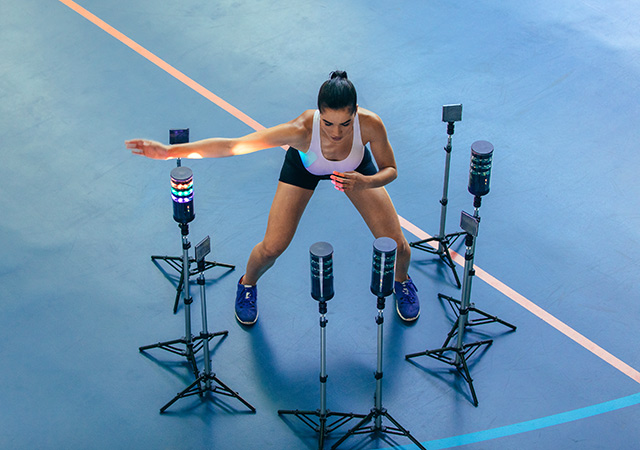- Accueil
- Unlock Your Reflexes: The Reaction Time Test Explained
Unlock Your Reflexes: The Reaction Time Test Explained
Our ability to respond quickly to stimuli is a crucial cognitive talent that affects how well we do in different facets of life. Reaction time is crucial to our performance, whether it be in sports, safe driving, or beating video game obstacles.
Tests that measure and explain response time help us assess our cognitive ability and pinpoint areas that need work. We may improve our reactivity, decision-making, and general performance in both routine work and specialized activities by practicing this crucial talent.
Join us as we examine the importance of response time in various situations and discover how improving this ability can result in better results and accomplishments in a variety of areas of life.
The reaction time test is an effective method for determining how quickly someone will react to certain stimuli. This test provides critical information about our motor coordination and cognitive processing skills by measuring how quickly we react. The response time test's relevance and range of applications will be revealed as we delve into its deep mechanics in this extensive study.

Understanding response time can help us make better informed judgments and perform at our best in a variety of situations, including sports and daily activities. We will also investigate practical methods to improve our reflexes and general reaction time so that we can perform at our best and succeed in a variety of areas of life.
So come along as we begin on this informative adventure to learn the secrets of response time testing and the way to better cognitive and responsiveness.
Importance of Reaction Time Testing:
The reaction time test is an essential tool in various fields due to its wide-ranging applications:
Sports Performance: In sports like basketball, soccer, and tennis, swift reactions can be game-changers. Athletes with faster reaction times can respond to opponents' moves more quickly and gain a competitive edge.
Driving Safety: Reaction time plays a significant role in driving, where split-second decisions can prevent accidents and save lives. Reaction time tests help assess a driver's responsiveness and potential hazards on the road.
Cognitive Abilities: Reaction time is a fundamental measure of cognitive processing speed. Studies have shown that faster reaction times are associated with better attention, memory, and decision-making skills.
Human-Computer Interaction : In user experience design and human-computer interaction research, reaction time tests are used to assess the efficiency and effectiveness of systems and interfaces.
Clinical Assessments: Reaction time tests can be used in clinical settings to evaluate Neurological function and identify cognitive impairments in certain medical conditions.
The Reaction Time Test Process:
The reaction time test process typically involves the following steps:
Stimulus Presentation: The test administrator presents the stimuli, which can be visual, auditory, or tactile, depending on the specific test.
Participant Response: The individual is instructed to respond to the stimulus as quickly as possible. They may be asked to press a button, click a mouse, or make a specific gesture.
Data Collection: The time between the presentation of the stimulus and the participant's response is measured and recorded as the reaction time.
Multiple Trials: To ensure accuracy, several trials are conducted, and the average reaction time is calculated.
Factors Influencing Reaction Time:
Various factors can influence an individual's reaction time, including:
Age: Reaction times tend to decrease with age, as cognitive processing speed and motor coordination may decline.
Experience and Training: Individuals who have undergone specific training or practice in certain activities may exhibit faster reaction times in those areas.
Fatigue: Fatigue can slow down reaction times, as tired individuals may not respond as quickly to stimuli.
Distractions: External distractions can affect reaction time, as individuals may take longer to process stimuli in a distracting environment.
Improving Reaction Time:
The good news is that reaction time can be improved through targeted training and practice. Cognitive training exercises, anticipation drills, and sport-specific practices can all enhance reflexes and decision-making skills. Video games that involve fast-paced action have also shown promise in improving reaction time.
Improving reaction time is a goal shared by athletes, gamers, and individuals seeking enhanced cognitive performance. Reaction time, the ability to respond swiftly and accurately to stimuli, plays a crucial role in various activities, from sports to driving. Through targeted exercises and training techniques, individuals can boost their reflexes and decision-making skills.
Cognitive training, anticipation drills, and sport-specific practices are effective ways to enhance reaction time. With consistent practice and dedication, individuals can improve their responsiveness, enabling them to excel in dynamic and fast-paced environments. Ultimately, honing reaction time leads to better performance, increased safety awareness, and a competitive edge in various endeavors.
Understanding the Science Behind Reaction Time :
Understanding the science behind reaction time delves into the intricate neural processes and cognitive mechanisms that govern our ability to respond to stimuli. The brain's processing speed, sensory perception, and motor coordination all play critical roles in determining reaction time. Researchers study the brain's information processing pathways and how different parts of the brain communicate to initiate a response.
Additionally, factors like age, experience, and attention levels influence reaction time. By unraveling the science behind reaction time, we gain valuable insights into how our brains process information, helping us optimize this essential cognitive skill for improved performance in various activities.
Conclusion :
Unlocking your reflexes through the reaction time test provides valuable insights into your cognitive abilities and responsiveness. By understanding the significance of reaction time in various fields, you can strive to improve this critical skill and enhance your performance in sports, driving, and everyday activities. Whether you're an athlete seeking a competitive edge or an individual looking to sharpen your cognitive processing, the reaction time test is a powerful tool to unlock the potential of your reflexes and excel in your endeavors.
Date de dernière mise à jour : 05/08/2023




